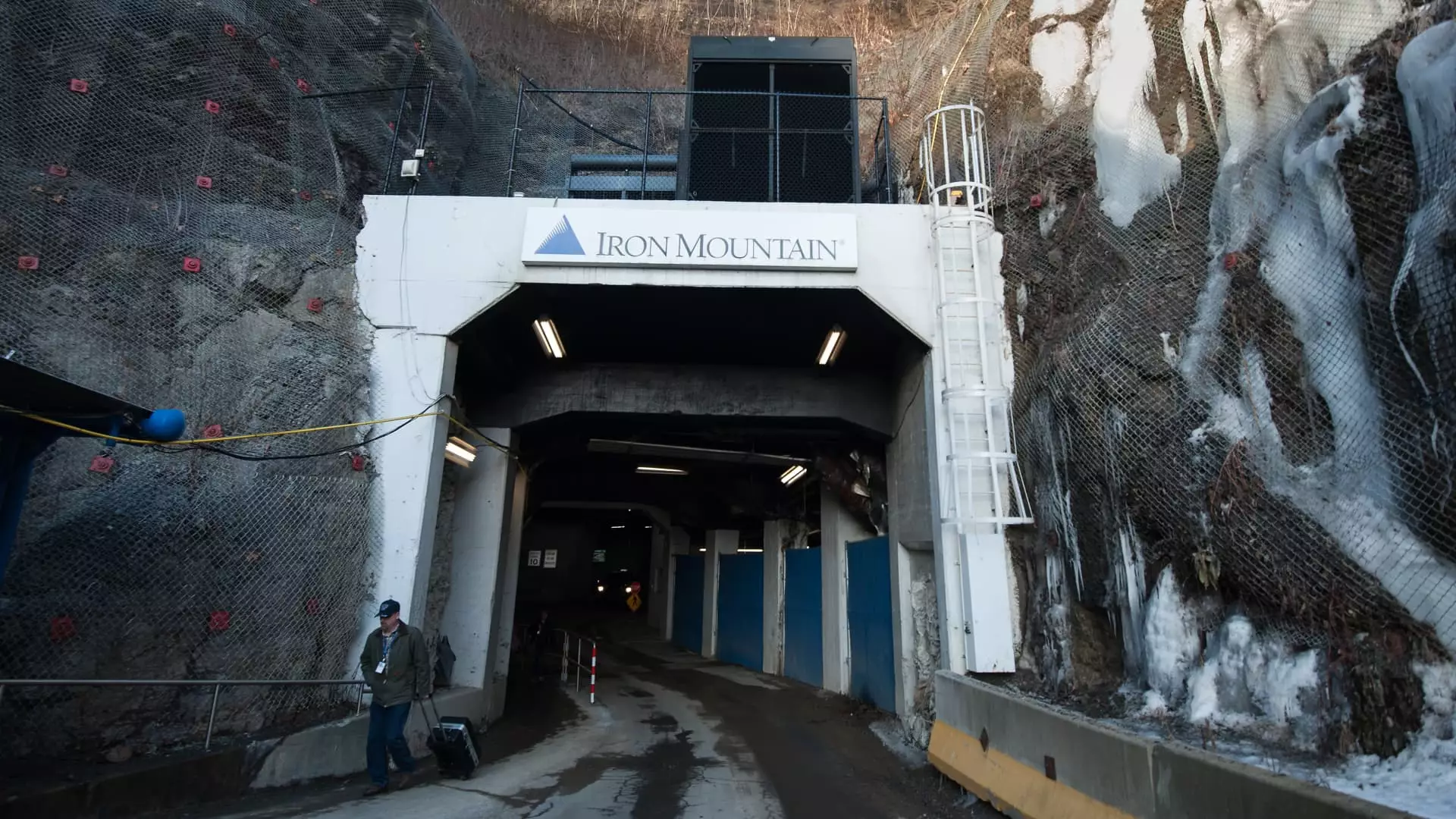Elon Musk, a figure synonymous with innovation and controversy, has recently directed public attention towards the inefficiencies encoded within federal operations, specifically highlighting the government’s peculiar document storage methods. Musk, in a notable meeting with President Donald Trump at the Oval Office, voiced criticism of the infrastructure managing federal retirement paperwork. His comments, directed at Iron Mountain, a company that plays a pivotal role in this process, have magnified discussions around governmental inefficiencies and fed into the ongoing scrutiny regarding budget allocation under the Trump administration.
In the heart of Pennsylvania lies an underground limestone mine that has been repurposed to manage the federal government’s retirement documentation. Musk likened it to a relic of the past, claiming it was akin to a “time warp.” This mine, a product of operations that commenced in 1955, has increasingly become a focal point of criticism due to its age and outdated practices. Musk escalated his critique by pointing out how the mine’s operational inefficiencies — such as the slow elevator speeds — drastically affect the pace at which the government processes retirement applications, raising eyebrows and questions regarding the organization’s modernity.
Charts and stats aside, Musk’s remarks aren’t just a casual critique; they shed light on a quirk in federal documentation practices. The mine’s role in federal operations can be startling when analyzed through the lens of modern data management systems. The current state of affairs raises concerns not only about the efficiency of processing but also about the continued relevance of such archaic methods in an age where digital transformation is a necessity, not a luxury.
Iron Mountain’s Response amidst Criticism
Following Musk’s tirade, Iron Mountain experienced a notable downturn in stock value, demonstrating the tangible impact of public sentiment on a company’s market performance. CEO Bill Meaney swiftly issued a bullish note about handling government contracts amid an evolving efficiency drive. He touted the company’s burgeoning business in digital transformation, asserting that the demand for such services aligns robustly with federal interests in reducing inefficiencies.
According to Meaney, Iron Mountain generates a staggering $130 million from its data center and digitization services, far eclipsing the mere $10 million it earns from managing physical documents. Such figures do not reflect a company solely dependent on one area; they highlight a broader scope of operations that positions Iron Mountain as a key player in the transition towards more advanced data management technologies. This ability to pivot amidst criticism points to Iron Mountain’s potential for future growth, even in volatile market conditions.
Market Reactions and Investor Sentiment
Wall Street’s reaction to Musk’s remarks has been mixed, portraying a sense of overreaction among investors. Analysts from prominent financial institutions have highlighted that Iron Mountain’s revenue streams are diversified enough to withstand the loss of any single government contract. The assertion that the federal government’s potential withdrawal from the mine operations wouldn’t drastically harm Iron Mountain’s financial health is an important takeaway for investors.
As internal discussions within financial circles continue, both Wells Fargo and Barclays analysts stand firm on the notion that the quest for enhancing governmental efficiency under the Trump administration could indeed serve as fertile ground for Iron Mountain’s other business ventures. The government has legal obligations to maintain records, ensuring a constant demand for Iron Mountain’s services, even amid overarching critiques regarding efficiency.
Musk’s dialogue surrounding government operations positioned him not merely as a critic but as a provocative force advocating for rapid transformation. His pointed contrast to the mining operations — suggesting that jobs could be more productive elsewhere in the US economy — ignites the discourse on re-evaluating roles in governmental organizations. While such statements can be contentious, they ultimately tap into a broader societal impulse towards efficiency and modern work practices.
As the Trump era continues to grapple with questions of fiscal responsibility in government spending, Musk’s statements can be interpreted as both a wake-up call to federal agencies as well as a platform for examining feasible advancements in governmental efficiency. Aligning public sentiment with financial viability can serve as a robust strategy not only for Iron Mountain but for broader interactions between technology and federal operations.
The interplay between Elon Musk’s commentary and the government’s dusty operational practices highlights not only the antiquated structures existing within federal agencies but also signals a compelling case for innovation. The evolving market reactions offer a glimpse into investor expectations within a shifting political landscape, while Iron Mountain finds itself on the cusp of potential growth driven by the digital age.

